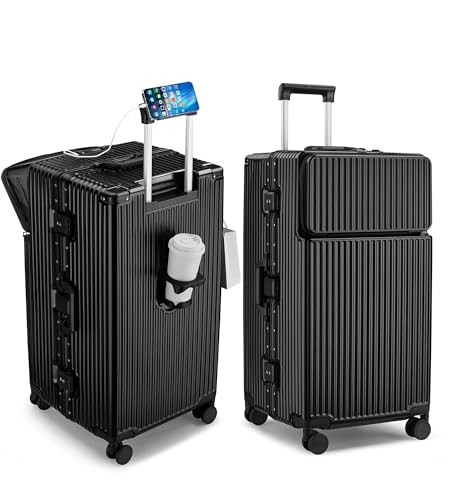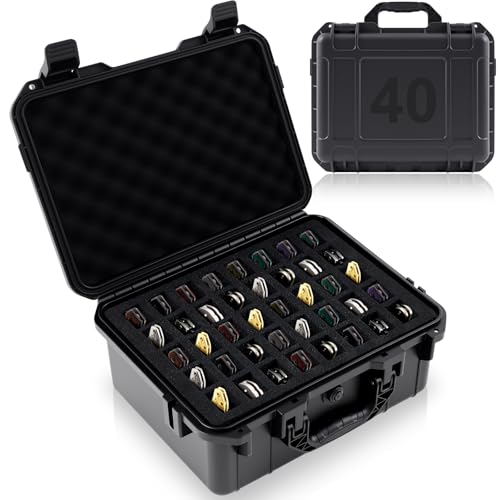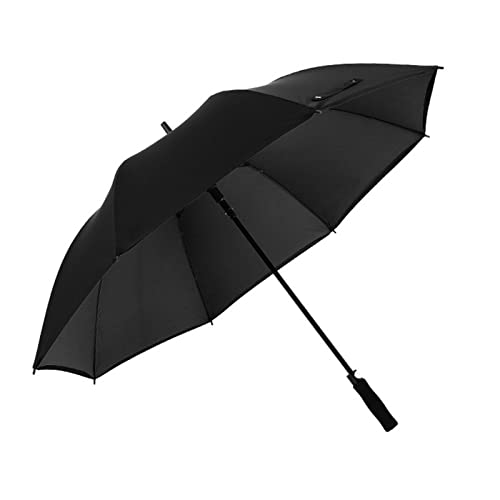
Typical charges: many chain properties keep items at no charge for the same day; independent venues commonly charge between $5 and $20 per bag for multi-hour or overnight retention. If a fee is quoted, get the exact amount and the maximum storage period in writing.
Liability and security: standard on-site coverage often caps reimbursement between $50 and $500 unless you declare higher value items and pay an extra fee. Remove passports, cash, electronics and jewelry. Photograph each bag and its contents, ask where items will be stored (locked room vs. public area), and record staff name and time of deposit.
When on-site storage is unavailable: use station or airport lockers, or third-party services such as LuggageHero, Bounce, Stasher or Nannybag – expect roughly $5–12 per day or $1–3 per hour; European city lockers commonly run €3–6 per day. Check maximum bag dimensions for lockers and service drop-off/pickup hours.
Checklist before handing over bags: confirm hours for drop-off and collection, obtain a numbered receipt with signature, note any per-bag fee and time limit, remove valuables, photograph bag condition, and verify ID required at pickup. If storing high-value items, ask about declaring value and consider travel insurance that covers stored property.
Which properties offer bag storage and for how long
Choose full-service chains or airport properties when you need complimentary storage: standard free retention ranges from 24 to 72 hours; anything beyond that typically incurs a fee.
Policy by property type: large chains (Marriott, Hilton, IHG) commonly accept guest bags and keep them 24–72 hours free, then charge roughly $5–$20 per day or place a 7–14 day maximum; boutique inns and B&Bs usually store only until the evening of departure or require advance arrangement; hostels provide lockers or desk storage–expect free same-day retention or nominal locker fees; airport and rail-side properties often accommodate until flight/connection time or 24–48 hours, sometimes for a small fee.
Fees and liability: many reception desks limit liability (typical declared value $50–$200) and require a signed receipt or tag. Long-term storage beyond one week is frequently treated as a paid service with daily rates; some establishments refuse multi-week retention for security and space reasons.
Exact steps to secure storage: request written confirmation of acceptance, a numbered tag or receipt, the name and phone of the staff member handling your case, and the retrieval deadline. Keep valuables and travel documents with you or in a verified in-room safe; photograph bags and tag numbers before leaving.
Alternatives if an accommodation declines: book commercial left‑baggage providers and app-based storage networks (typical charges $5–$15 per day), use station/airport lockers for short stays, or arrange same-day courier transfers to a storage hub. Always call ahead and confirm conditions, hours, and costs in writing.
How to request storage at the front desk: exact phrases and key details
Ask reception for time-specific storage, present ID and a contact number, request a numbered claim tag and a written receipt before leaving your items.
Exact phrases to use at reception
“Can I store two bags here until 18:00 today?” “I’d like to leave these three suitcases with reception from 09/06 until 11/06; is that possible?” “Is there a fee to keep my belongings overnight?” “What are your hours for item collection and is pickup possible outside desk hours?” “Do you issue a claim tag and a receipt for stored items?” “What is your liability for loss or damage and is there a declared-value limit?” “Can my colleague collect my items on my behalf if I give them this claim tag and a photo ID?”
Key details to provide and to confirm
Give full name, room number or reservation number, phone number, number and type of items, exact drop-off and planned pickup dates/times. Confirm storage location (reception or secure room), identification required at pickup, storage fees (per item or per day), maximum storage period, any insurance or declared-value limits, handling instructions for fragile or battery-powered items, and whether oversized items need special arrangements. Ask for a paper or electronic receipt that lists a claim tag number, contact for retrieval, and the staff member’s name on duty.
Typical charges, required deposits and hotel liability for stored bags
Recommendation: request a signed, itemized receipt and a written statement of the property’s maximum liability before leaving any bag at reception.
Common fee structures: many properties waive fees for same-day short stays (under 8 hours). Typical charges for overnight or multi-day storage range from $2–$10 per bag per day at budget/independent places; $10–$25 per bag per day for oversized items or long-term holds. Some venues charge a flat rate for the first 24 hours (usually $5–$20) then a daily rate thereafter. Expect premium rates at airport-adjacent and high-end locations.
Deposit practices: refundable deposits or credit-card holds are frequently requested for high-value or long-term deposits. Typical holds: $25–$100 refundable; credit-card authorizations commonly range $50–$200 depending on declared value. Small properties may require cash deposits; retain the receipt to ensure return.
Liability caps and exclusions: most accommodation policies limit responsibility to modest amounts–commonly $50–$200 per item or per claim–unless valuables are declared and placed in a secured safe. Items often excluded or subject to lower protection include cash, jewelry, electronics, passports and important documents. If staff stores a bag in an on-site secure safe and signs a receipt listing contents, some properties accept higher liability; without that documentation, recovery claims are frequently denied or capped.
Third-party handling and off-site warehouses shift responsibility: if reception transfers bags to a courier or external storage facility, ask for the third party’s name, contact, and their receipt. Liability typically moves to that contractor; verify their insurance limits before consenting.
Claim requirements and time limits: to file a claim you will almost always need the original receipt/ticket, photographic ID, proof of ownership/value (purchase receipts or photos), and a written incident report from the property. Reporting windows commonly range from 24 to 72 hours for theft or damage claims; longer-term discoveries may face denial without immediate notification. For theft above a certain threshold many properties require a police report.
Minimize risk: remove high-value items and carry them or use an in-room safe; photograph bag contents and exterior tags; lock zippers with a small padlock or use a lockable tote; request a named receipt and note the storage location on the ticket. Consider travel insurance that explicitly covers stored-item loss or a credit-card benefit that covers checked or stored personal property. For compact, secure carry options see best mens tote bags for travel.
What ID, bag tags and receipts properties commonly require
Present a government-issued photo ID that matches the reservation name, request a numbered claim tag, and retain the printed receipt showing tag number, timestamp and staff signature until pickup.
- Acceptable ID types
- Passport (required for international guests)
- National identity card or driver’s licence (photo and expiration date visible)
- Military ID or government employee ID (accepted at some properties)
- For corporate bookings: company credit card plus a corporate authorization letter or booking confirmation
- Minors: parent/guardian photo ID plus written permission if someone else will collect
- Tag formats and on-tag data
- Common types: adhesive paper tags, hard plastic numbered tags, tamper-evident seals.
- Essential information printed on the tag: property name or code, unique tag number, date/time issued, staff initials.
- Barcoded tags appear at larger properties for scanned tracking – photograph the barcode on your phone as backup.
- Receipt contents you should insist on
- Guest name exactly as on ID and booking.
- Unique tag/claim number matching physical tag.
- Brief description of items (e.g., “2 large suitcases, 1 carry-on” – avoid vague terms).
- Date and time the items were taken into storage, storage location code or room number, staff name and signature.
- Contact phone/email for reception and an indicated expiry or latest retrieval date if applicable.
- Third-party pickup and authorisations
- Property will usually require: original guest ID, the physical receipt/claim tag and a signed written authorization naming the collector.
- Photocopies of the guest’s ID plus a copy of the receipt are often requested to be held with the authorization.
- If someone without ID arrives, request a signed affidavit and expect delays or refusal at many establishments.
- Scans, photocopies and data retention
- Many reception desks scan or photocopy ID; ask how long copies are retained and under which privacy policy.
- If you decline a scan, expect some properties to refuse storage; offer a visible physical ID instead.
- Valuables and high-value items
- Items of high value should be inventoried in writing and placed in a safe; request a signed inventory sheet and a safe receipt.
- Do not accept verbal-only acknowledgement for electronics, jewellery or cash – get it in writing with item descriptions and serial numbers where possible.
- Lost or missing receipt protocol
- Without the receipt, retrieval typically requires original photo ID plus staff verification and may involve a manager’s approval.
- For disputes over missing or damaged items many properties ask for a police report before processing a claim; photograph contents and keep any photos with timestamps.
- Practical checklist to follow at reception
- Show photo ID that matches the booking name.
- Insist on a numbered physical claim tag and photograph it.
- Obtain a printed receipt containing tag number, item list, timestamp and staff signature.
- For third-party collection provide a signed authorization naming the collector and a copy of your ID.
- Request written confirmation if items are stored in a secure safe rather than general storage.
If a stored bag needs cleaning you can consult cleaning guidance such as the best bleach dilution for pressure washing for fabric-safe concentrations before attempting spot treatment.
Alternatives when an accommodation refuses: lockers, courier pick-up and apps
If reception refuses to store your bags upon departure, book a nearby station or airport locker, arrange a courier pick-up, or reserve a spot with a peer-to-peer storage app – confirm dimensions, hours and insurance before leaving the property.
Station and airport lockers: sizes, cost and practical tips
Where to look: major train stations, airports and some city hubs. Typical compartment sizes: small ~35×30×20 cm (daypack), medium ~60×40×40 cm (carry-on), large ~100×45×50 cm (checked suitcase). Price ranges: €1–€6 per few hours or €5–€15 per day in Europe; coin lockers in Japan commonly ¥400–¥800; US transit lockers vary by city but expect $5–$20/day. Time limits: many systems allow 24–72 hours; long-term requires a separate left-baggage counter. Use only lockers with CCTV or staffed counters for higher security, keep the ticket/QR code, photograph the bag and its contents, and avoid storing valuables.
Courier pick-up and travel-specific shippers
Options: same-day local couriers, national carriers (FedEx/DHL/UPS) for door-to-door, and travel-focused shippers (Luggage Forward, Send My Bag) for multi-day international transit. Typical costs: intra-city pickup $10–$40; domestic next-day $20–$80 per bag depending on size; transatlantic shipments commonly $70–$250 per bag. Transit times: same-day or next-day locally; 1–3 days domestic; 3–10 days international depending on service. Packaging and claims: photograph contents, use a secure lock, declare value and buy additional coverage if carrier liability is low (standard limits often very small per pound unless upgraded). If the original address refused service, arrange pickup at a café, coworking space or station desk and confirm exact pickup window with the driver.
Peer-to-peer storage apps (examples and usage): Stasher, Bounce, LuggageHero, Nannybag and BagBnB operate via local shops and services. Fees typically $5–$15 per bag per 24 hours or hourly rates with a daily cap; most list on-map locations near transit points and allow instant booking. Before drop-off: confirm opening hours, maximum storage duration (often 30 days limit), insurance coverage amount on the app (ranges commonly $1,000–$3,000), and cancellation policy. At drop-off, keep the booking confirmation and timestamped photos; at pickup, verify the return code and inspect the bag on-site.
Quick checklist to choose between options: measure your bag; check locker dimensions and opening hours; compare courier transit time and declared-value costs; read app host reviews and insurance fine print; take photos and remove high-value items; plan pickup time with margins for delays.







